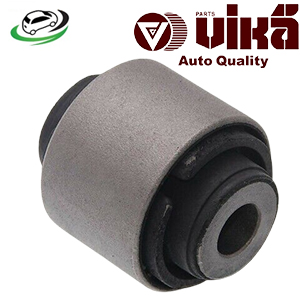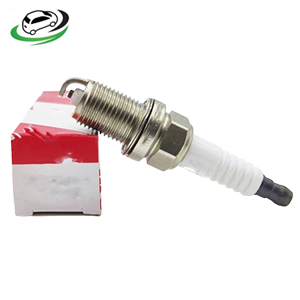-20%
Get Genuine Toyota 90919-01191 Spark Plug
Spark plugs are a critical component of an internal combustion engine, playing a vital role in igniting the air-fuel mixture to power the engine. Genuine spark plugs, as opposed to aftermarket alternatives, are specifically designed to meet the exact specifications and performance standards of a particular vehicle. Understanding the importance, function, types, and maintenance of genuine spark plugs is essential for ensuring optimal engine performance and longevity.
Importance of Genuine Spark Plugs
Genuine spark plugs are manufactured by or for the vehicle’s original equipment manufacturer (OEM). They offer several advantages:
- Compatibility: They are specifically designed for the vehicle’s engine, ensuring perfect fit and function.
- Performance: Genuine spark plugs meet the OEM standards for performance, ensuring optimal ignition and engine efficiency.
- Durability: Made with high-quality materials and precision engineering, they offer better longevity and reliability.
- Warranty: Using genuine parts can help maintain the vehicle’s warranty and avoid potential issues with aftermarket alternatives.
Function of Spark Plugs
Spark plugs are responsible for creating the spark that ignites the air-fuel mixture in the combustion chamber. This ignition is crucial for starting the engine and maintaining smooth operation. The key components of a spark plug include:
- Central Electrode: Carries the high-voltage current from the ignition system.
- Ground Electrode: Mounted at the base of the plug, creating a gap with the central electrode where the spark occurs.
- Insulator: Made of ceramic, it isolates the central electrode from the metal casing, preventing electrical leakage.
- Metal Casing: Provides structural integrity and helps dissipate heat.
Types of Genuine Spark Plugs
Several types of spark plugs are used depending on the engine design and requirements:
- Copper Spark Plugs: Have a solid copper core with a nickel alloy electrode. They offer good performance but have a shorter lifespan.
- Platinum Spark Plugs: Feature a platinum disc welded to the center electrode, offering better durability and heat resistance.
- Double Platinum Spark Plugs: Have platinum on both the center and ground electrodes, providing improved longevity and performance.
- Iridium Spark Plugs: Use an iridium tip, known for its excellent durability and ability to withstand high temperatures, making them the longest-lasting and best-performing plugs.
Signs of Worn Spark Plugs
- Engine Misfires
One of the most common signs of worn spark plugs is engine misfires. Misfires occur when the spark plug fails to ignite the air-fuel mixture in one or more cylinders. This can cause the engine to run unevenly and can be felt as a jerking or sputtering sensation, particularly during acceleration.
Symptoms:
- Intermittent loss of power.
- Rough engine operation.
- Check Engine Light (CEL) illuminated on the dashboard.
Causes:
- Eroded or worn electrodes.
- Carbon buildup on the spark plug tip.
- Faulty ignition system components.
- Poor Fuel Economy
Worn spark plugs can negatively impact fuel efficiency. When spark plugs are not functioning correctly, the combustion process becomes less efficient, leading to increased fuel consumption.
Symptoms:
- Noticeable decrease in miles per gallon (MPG).
- More frequent trips to the gas station.
Causes:
- Incomplete combustion of the air-fuel mixture.
- Spark plugs not firing at the optimal time.
- Difficulty Starting the Engine
A faulty spark plug can make starting the engine more difficult. This is because the spark required to ignite the air-fuel mixture is weak or inconsistent, making the engine struggle to start.
Symptoms:
- Extended cranking time when starting the vehicle.
- Multiple attempts needed to start the engine.
- No start condition in severe cases.
Causes:
- Worn electrodes that cannot produce a strong spark.
- Carbon or oil fouling on the spark plug.
- Rough Idling
If the engine runs unevenly or roughly while idling, it could be a sign of worn spark plugs. Rough idling is often characterized by vibrations and unusual noises coming from the engine.
Symptoms:
- Vibrations felt in the steering wheel or cabin.
- Engine shaking at idle.
- Irregular engine noise.
Causes:
- Spark plugs not firing consistently.
- Deposits on the spark plugs affecting their performance.
- Reduced Acceleration
Worn spark plugs can lead to sluggish acceleration because the engine is not receiving the proper spark needed for optimal power output. This results in a noticeable decrease in engine responsiveness.
Symptoms:
- Hesitation or delay when pressing the accelerator pedal.
- Decreased overall power and performance.
- Difficulty maintaining speed or accelerating uphill.
Causes:
- Weak spark causing incomplete combustion.
- Spark plug gaps that are too wide or too narrow.
- Check Engine Light (CEL)
The Check Engine Light can illuminate for various reasons, one of which is worn or faulty spark plugs. Modern vehicles have onboard diagnostics that monitor engine performance and detect issues related to ignition.
Symptoms:
- CEL remains illuminated on the dashboard.
- Diagnostic trouble codes (DTCs) related to misfire or ignition issues.
Causes:
- Deteriorated spark plugs causing misfires.
- Ignition coil or spark plug wire issues.
- Increased Exhaust Emissions
Worn spark plugs can cause an increase in exhaust emissions due to incomplete combustion. This can result in higher levels of hydrocarbons (HC), carbon monoxide (CO), and nitrogen oxides (NOx) being released into the atmosphere.
Symptoms:
- Failed emissions test.
- Noticeable exhaust smoke or odor.
Causes:
- Spark plugs not igniting the fuel mixture properly.
- Rich or lean air-fuel mixture.
Maintenance and Replacement
Regular maintenance and timely replacement of spark plugs are essential for optimal engine performance:
- Inspection: Periodically check spark plugs for signs of wear, such as carbon buildup, oil fouling, or electrode erosion.
- Gap Measurement: Ensure the spark plug gap is set to the manufacturer’s specifications. An incorrect gap can lead to poor ignition performance.
- Replacement Interval: Follow the vehicle manufacturer’s recommended replacement interval, typically ranging from 30,000 to 100,000 miles, depending on the type of spark plug.
- Installation: When replacing spark plugs, ensure they are properly torqued to avoid over-tightening or under-tightening, which can damage the spark plug or engine.
Follow us on Facebook for more parts.



